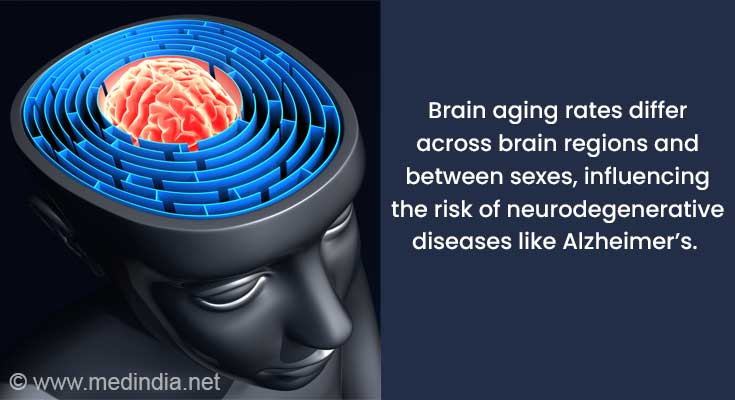AI-powered MRI analysis tracks brain aging, aiding early detection of cognitive decline and Alzheimer's.
- AI models non-invasively track brain aging using MRI scans
- Faster brain aging is linked to higher cognitive impairment risks
- Potential for early Alzheimer’s risk prediction and treatment planning
Deep learning to quantify the pace of brain aging in relation to neurocognitive changes
Go to source).
Your brain might age faster than you do! AI now helps detect early cognitive decline. #brainhealth #medindia’
Understanding Brain Aging
Biological brain age differs from chronological age. Two people of the same chronological age might have different biological brain ages due to how well their brain tissues function at a cellular level. While common methods use blood samples to determine biological age, these do not effectively measure brain aging because the brain’s barrier prevents blood cells from reflecting brain-specific changes. In contrast, MRI scans provide a non-invasive alternative for assessing brain health.
Advancement Over Previous Methods
Earlier models estimated brain age from a single MRI scan by comparing brain anatomy to large datasets. However, these models had limitations. They could not determine when accelerated aging occurred or whether brain aging was progressing faster than normal. The new AI model addresses these issues by analyzing multiple MRI scans from the same person over time.
A More Accurate Approach
The newly developed model uses a three-dimensional convolutional neural network (3D-CNN) to provide a more precise picture of brain aging. By comparing baseline and follow-up MRI scans, it can detect subtle changes in brain structure that indicate how quickly the brain is aging. This longitudinal approach offers a clearer understanding of whether brain aging is accelerating or decelerating.
Additionally, the AI generates “saliency maps” that highlight specific brain regions most affected by aging. These maps help pinpoint areas where changes in brain structure are most closely linked to cognitive decline.
Correlation with Cognitive Function
Tests on both cognitively healthy individuals and patients with Alzheimer’s disease showed a strong correlation between the AI’s brain aging measurements and results from cognitive function tests. This suggests the model could serve as an early indicator of neurocognitive decline, allowing for earlier intervention before significant symptoms appear.Potential for Personalized Treatment
The ability to measure brain aging speed may help tailor treatments based on individual risk profiles. Since faster brain aging is linked to a decline in memory, executive function, and processing speed, early identification could enable preventative measures or targeted therapies before cognitive impairment becomes severe.The model also revealed differences in brain aging rates across various brain regions and between sexes. These findings may help explain why men and women experience different risks for neurodegenerative diseases.
This AI-powered tool marks a significant advancement in brain health monitoring. By tracking how quickly the brain ages, it offers potential for earlier detection of cognitive decline, paving the way for more effective interventions and personalized treatment strategies.
Reference:
- Deep learning to quantify the pace of brain aging in relation to neurocognitive changes - (https://www.pnas.org/doi/10.1073/pnas.2413442122)
Source-Medindia
















